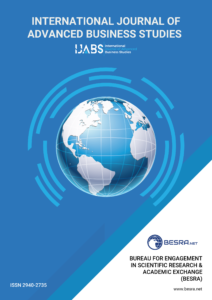Touhidur Rahman Sajib *, Email: 2212-7215@st.cyberjaya.edu.my
Md Jahidul Islam, Email: 2205-5544@st.cyberjaya.edu.my
Maniyarsi Gowindasamy, Email: maniyarasi@cyberjaya.edu.my
University of Cyberjaya, Cyberjaya, Malaysia
*Corresponding e-mail: 2212-7215@st.cyberjaya.edu.my
Abstract: This abstract discusses the goal of improving connections between organizations and stakeholders through sustainable human resource management (HRM) practices that balance financial success with corporate sustainability across social, human, and environmental dimensions.
Design and Methodology: Operationalizing sustainable HRM involves bundling pro-financial, social/human, and environmental qualities into suggested HRM practices and synergizing them to produce integrated sustainability outcomes. Understanding the differences between control-oriented, commitment-based, and sustainable HRM systems allows organizations to tailor practices to sustainability goals.
Findings: Eco-friendly HRM practices like environmental management systems can integrate sustainability into core competencies. Further research on effective HRM practices bundles is needed to grasp how to achieve optimum corporate sustainability fully.
Practical Implications: Sustainable HRM is crucial for meeting social, human and environmental targets; financial and productivity goals will suffer without effectively implementing such HRM practices. Businesses must focus on sustainable HRM to connect with stakeholders while being financially successful across sustainability’s triple bottom line – social, human, and environmental aspects.
Keywords: Sustainable HRM, strategic commitment, sustainability, effective HRM, social consequences

